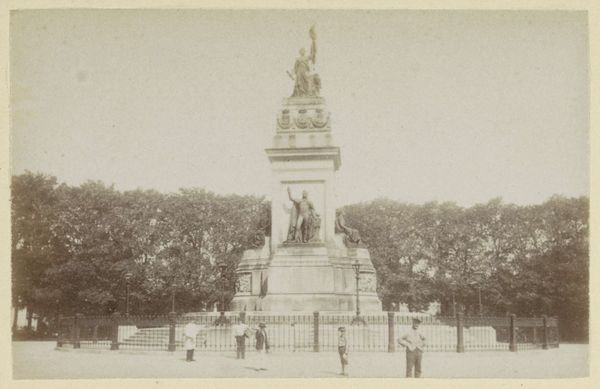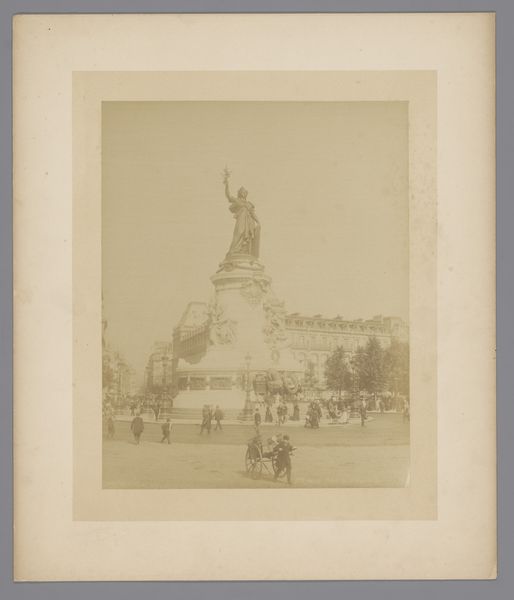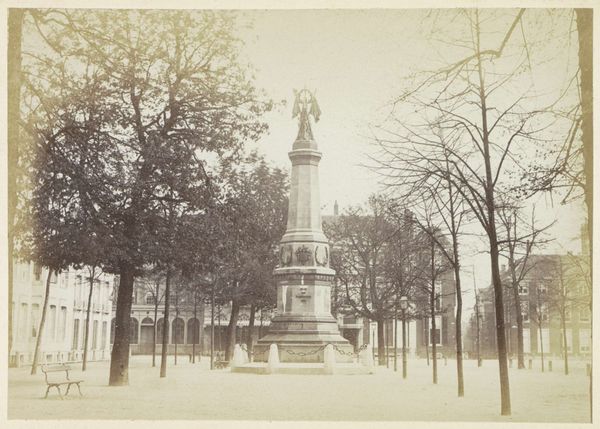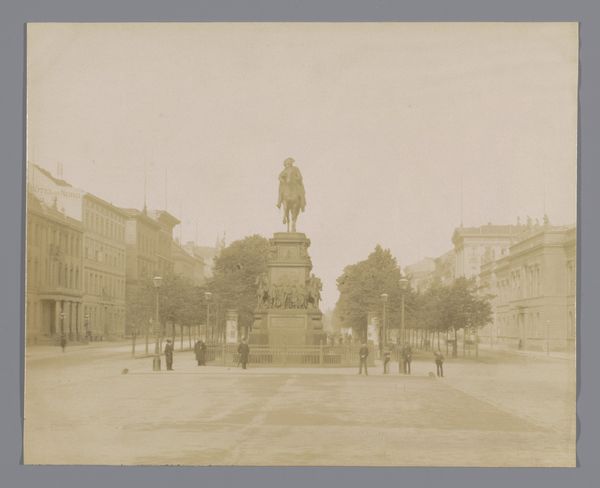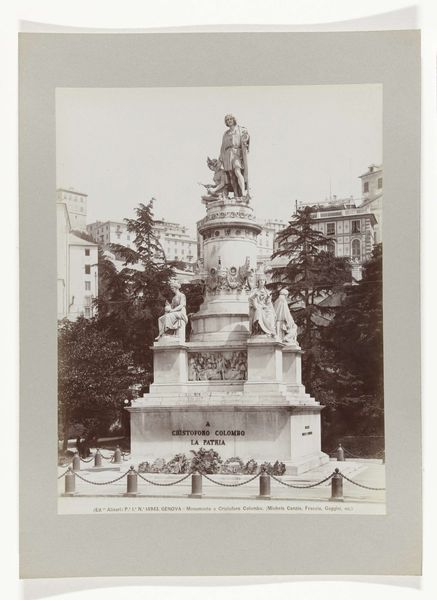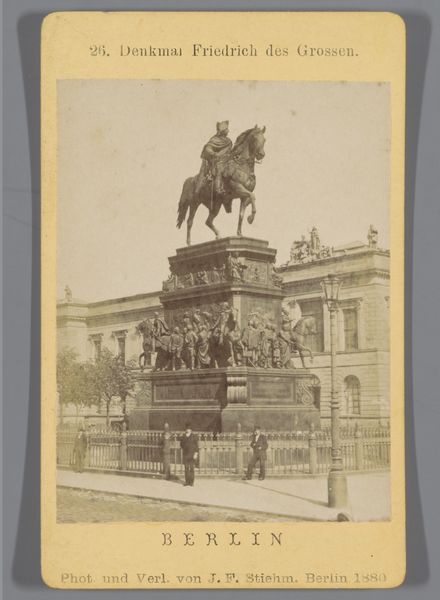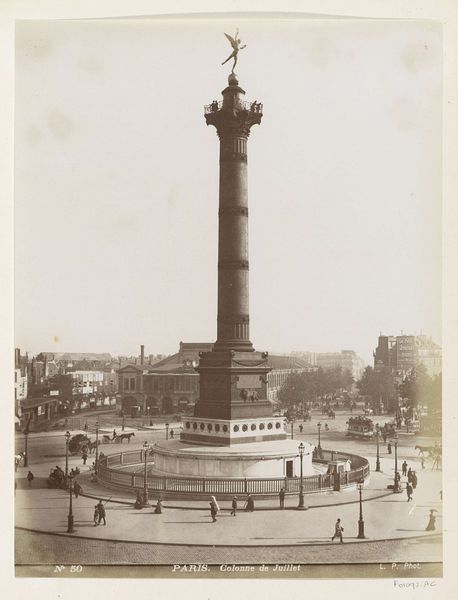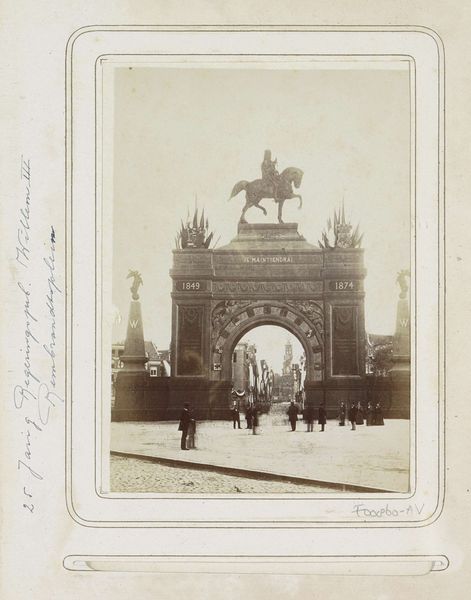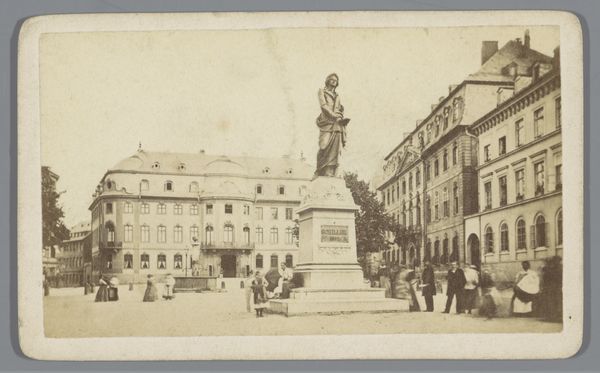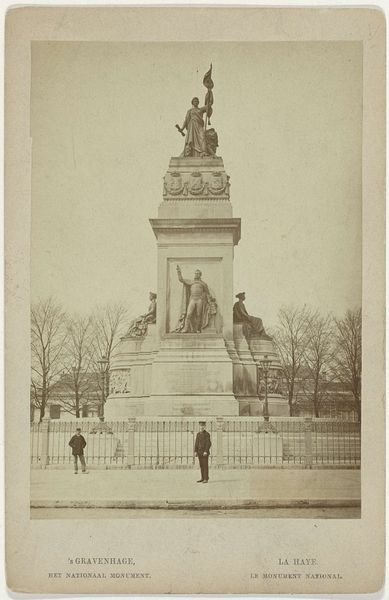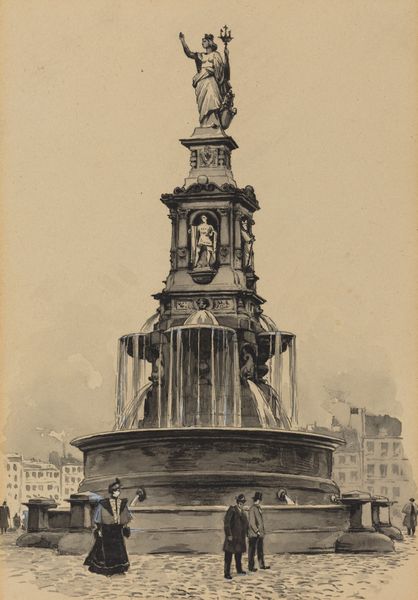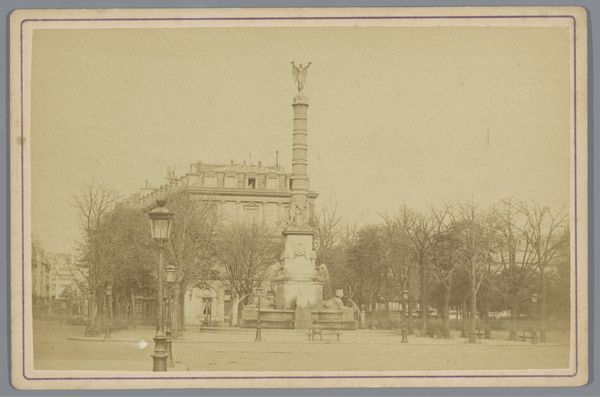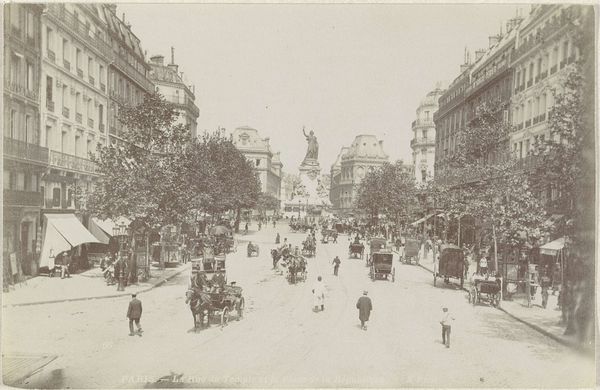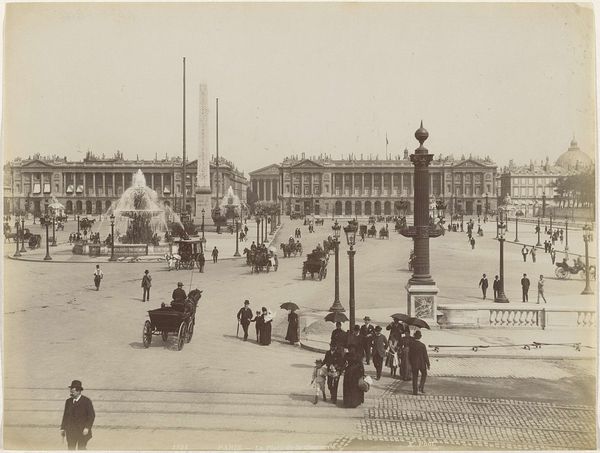
Place de la République in Parijs met het Monument voor de Republiek c. 1880 - 1900
0:00
0:00
print, photography
#
statue
# print
#
neo-impressionism
#
landscape
#
archive photography
#
photography
#
historical photography
#
19th century
#
cityscape
Dimensions: height 212 mm, width 267 mm
Copyright: Rijks Museum: Open Domain
Louis Antoine Pamard made this albumen print of the Place de la République in Paris. This photographic process was all the rage in the second half of the 19th century, and involved coating paper with an emulsion of egg white and silver nitrate. The albumen print was significant in the history of photography because it was the first commercially exploitable method of producing a photographic positive from a negative. It was a labor intensive process, the making of which included coating, sensitizing, exposing, developing, toning and fixing. Photographers often hired assistants to help with the printing. The technique became a crucial part of the burgeoning industry around photography, driven by a desire to document and consume views of the world. Pamard's image of the Place de la République, with its grand monument, shows the city as a spectacle for the growing middle classes. This photo is not just an image, but an index of social transformation.
Comments
No comments
Be the first to comment and join the conversation on the ultimate creative platform.
